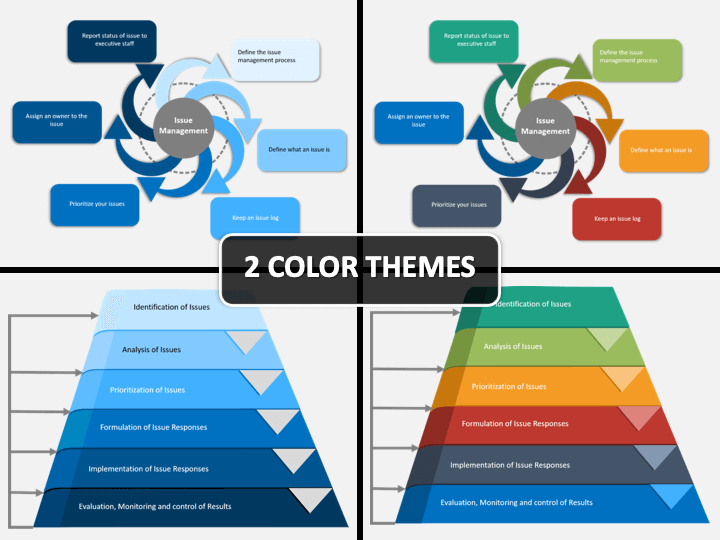
On-the-job training is the best way to get an understanding of the various levels of human resource skills. Practical experience will give you the opportunity to learn more about HR. You'll also be more confident in your day-today responsibilities. You can also find out more about HR through reading or by using tools. The best way to improve is to practice. If you'd like to improve your skills in HR, bookmark relevant web pages with CTRL or Command + D. If you're looking for team-building tips, LinkedIn is a great resource.
Human resources levels of skill
A human resource professional in a multinational company must be able to appreciate the cultural differences within the workplace. Indian culture encourages promotions every year, while Western culture promotes people every three - five years. Chinese workers celebrate the Chinese New Year in China and may not return home to work until the holiday ends. HR professionals must be able to appreciate cultural differences.
HR professionals also need soft skills. They must be able take swift decisions and protect the company’s interests. These decisions must be made with respect for employees and without discrimination. Many employees are afraid of asking for personal time because they are worried that their managers will find them uncommitted, lazy, irresponsible, etc. For this reason, a human resources professional should be able to manage these employees in a fair and timely manner.

Communication skills
Communication skills are essential for any HR job. It can be hard to learn these skills by yourself, but you can get help from a communication training program. You will be able to develop professional and interpersonal skills and you will learn how to communicate effectively with different types of communication styles. You will learn how you can influence others and manage conflict.
HR professionals must listen to employees and get their feedback. These informal conversations can lead to improvements or new ideas for policies. If employees are complaining about a policy on a regular basis, it may be time to review it. You must be organized and eager to learn about your employees in order to improve your communication skills. To save a website that you do not feel confident writing on, bookmark it.
Organizational skills
Good organization skills are essential to succeeding in any industry, and showcasing them in your resume can help you improve your chances of landing a great job. These skills include managing time, organizing meetings, managing office materials inventory, creating useful cross-team documents and many more. Another key skill is being self-starter. Moreover, proving your organizational skills does not end with your resume. You should continue to show these skills throughout the interview process.
Your organizational skills can be displayed in many different ways: on your cover letter or resume and even in interviews. The job you apply for will dictate the skills required. Your skills should be relevant. On your resume or work history, list all the skills you have and highlight what skills you excel at. You can also make an impact during interviews by sharing your skills.

Emotional intelligence
Consider investing in emotional intelligence training if you want to increase employee engagement. Companies will be able to use this skill to help employees deal with work stress. As a human resource professional, you can help employees to develop their emotional intelligence using training programs and other resources. You can read on to find out more about emotional intelligence training. And don't worry: these programs aren't just for HR professionals! They can also be of benefit to all employees in your company.
Intrinsic motivation plays a crucial role in emotional intelligence. People with high EQ have higher motivation to achieve their goals. They're also more likely to persist and achieve their goals. This type personality is common among high-achieving people, and it's something that can be cultivated over time. In fact, some companies even encourage employees to develop this skill through training. Here are a few strategies for developing emotional intelligence.
FAQ
What is TQM exactly?
The industrial revolution was when companies realized that they couldn't compete on price alone. This is what sparked the quality movement. To remain competitive, they had to improve quality as well as efficiency.
To address this need for improvement management created Total Quality Management (TQM) which aimed to improve all aspects of an organization's performance. It involved continuous improvement, employee participation, and customer satisfaction.
Six Sigma is so well-known.
Six Sigma is easy to use and can lead to significant improvements. It also provides a framework for measuring improvements and helps companies focus on what matters most.
How do you manage your employees effectively?
Achieving employee happiness and productivity is key to managing them effectively.
It is important to set clear expectations about their behavior and keep track of their performance.
Managers need clear goals to be able to accomplish this.
They need to communicate clearly and openly with staff members. They should also ensure that they both reward high performers and discipline those who are not performing to their standards.
They must also keep track of the activities of their team. These include:
-
What was accomplished?
-
How much work was put in?
-
Who did it?
-
What was the moment it was completed?
-
Why was this done?
This information can be used to monitor performance and evaluate results.
What are the 4 major functions of management
Management is responsible for planning, organizing, directing, and controlling people and resources. It also includes developing policies and procedures and setting goals.
Management assists an organization in achieving its goals by providing direction, coordination and control, leadership, motivation, supervision and training, as well as evaluation.
These are the four major functions of management:
Planning – Planning involves deciding what needs to happen.
Organizing – Organizing means deciding how to organize things.
Directing - Directing is when you get people to do what you ask.
Controlling - Controlling means ensuring that people carry out tasks according to plan.
Statistics
- The profession is expected to grow 7% by 2028, a bit faster than the national average. (wgu.edu)
- 100% of the courses are offered online, and no campus visits are required — a big time-saver for you. (online.uc.edu)
- Your choice in Step 5 may very likely be the same or similar to the alternative you placed at the top of your list at the end of Step 4. (umassd.edu)
- This field is expected to grow about 7% by 2028, a bit faster than the national average for job growth. (wgu.edu)
- Hire the top business lawyers and save up to 60% on legal fees (upcounsel.com)
External Links
How To
How do you use the 5S in your office?
Your first step in making your workplace more efficient and productive is to organize everything. A clean desk, a neat room, and a well-organized space are all key factors in ensuring everyone is productive. To ensure space is efficiently used, the five S's (Sort Shine, Sweep Separate, Store and Separate) are all essential. We'll be going through each step one by one and discussing how they can all be applied in any environment.
-
Sort. Clear away clutter and paper so that you don’t spend time looking for it. You should place things where you are most likely to use them. If you frequently refer back to something, put it near the place where you look up information or do research. It is important to consider whether or not you actually need something. If it does not serve a purpose, get rid of it.
-
Shine.Keep your belongings neat and orderly so that you spend less time cleaning up after yourself. Do not keep anything that could possibly cause damage or injury to others. Find a safe way to store pens that you don't want anyone else to see. It might mean investing in a pen holder, which is a great investment because you won't lose pens anymore.
-
Sweep. Clean off surfaces regularly to prevent dirt from building up on your furniture and other items. A dusting machine is a great investment to keep your surfaces clean. To keep your workstation neat, you can reserve a certain area for dusting or sweeping.
-
Separate. When you are ready to dispose off your trash, it is a good idea to separate it into bins. You can dispose of your garbage easily by placing trash cans strategically around the office. It's a great idea to place trash bags beside each bin, so you don’t have to go through tons of garbage to find what it is.